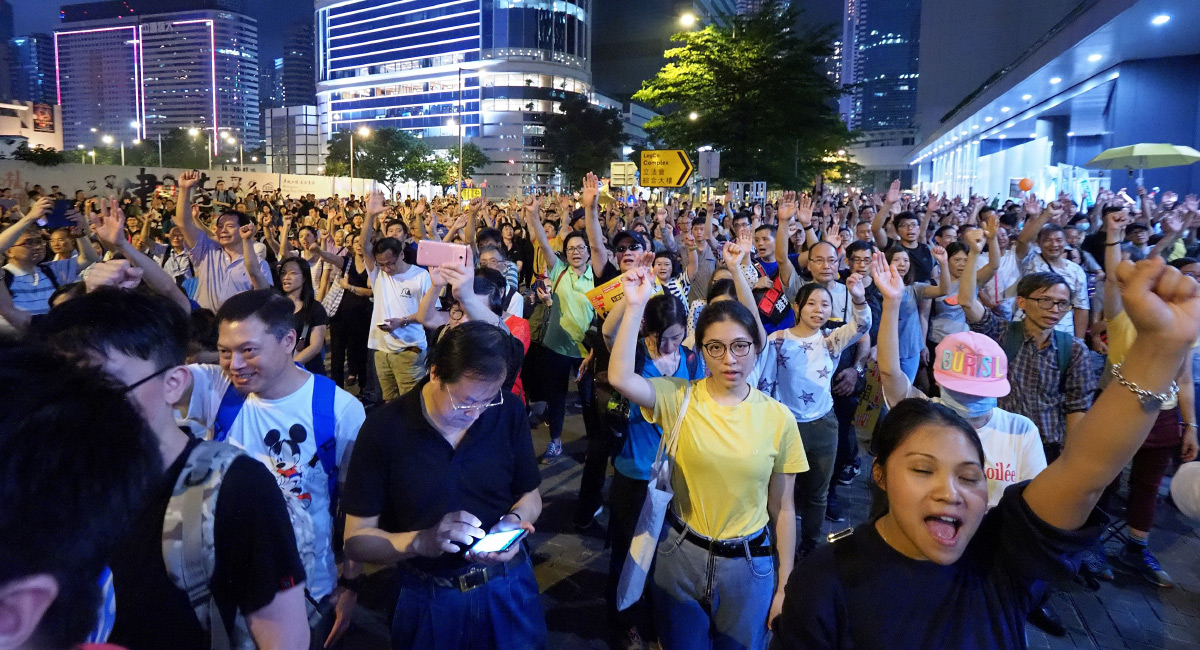China’s legislature recently approved imposing a new national security law on Hong Kong that will jeopardize its freedoms. If the United State truly wants to help Hong Kongers, and punish China’s communist government, tariffs are not the answer. Instead, it should offer Hong Kong’s residents asylum visas.
The new law would further erode the civil liberties that Hong Kong protesters have been fighting to preserve in recent years. As journalist-politician Claudia Mo, a member of the Hong Kong Legislative Council, stated, “They’ve practically taken away our soul. Our soul we’ve been treasuring all these years, the rule of law, human rights, they’re taking away all the core values we’ve come to know. From now on, Hong Kong is nothing but just another mainland Chinese city.”
President Donald Trump agrees, stating “China’s latest incursion... makes clear that Hong Kong is no longer sufficiently autonomous to warrant the special treatment that we have afforded the territory.” To back up his words, the President indicated the administration planned to scrap the policies exempting Hong Kong from tariffs and other export controls the United States imposes on China.
Unfortunately, this probably will have little impact. When the United Kingdom ceded control of the territory to China in 1997, Hong Kong’s economy comprised more than a quarter of China’s entire economy. Punishing Hong Kong at that time would have been a significant blow to the communist regime in Beijing.
Since that time, rapid economic growth has powered China’s economy to the second-largest in the world, reducing Hong Kong’s share of the Chinese economy to just 2.7 percent. So increasing trade restrictions will do little to punish Beijing and, in fact, will have the perverse effect of making Hong Kong’s economy more dependent on the mainland.
If the Trump administration wants to do more than slap China’s wrist, it should follow the United Kingdom’s lead. Foreign Secretary Dominic Raab has announced that the U.K. will extend visa stays and provide a path to citizenship for Hong Kong residents who hold British National Overseas passports. That would allow about 315,000 people who received these passports before sovereignty was transferred China to emigrate to the U.K.
The U.K. government, like President Trump, has taken a tougher line on immigration in recent years. So offering these Hong Kong residents a path to U.K. citizenship marks a significant departure from the norm.
President Trump should similarly change course and significantly expand the availability of asylum visas to Hong Kongers wishing to preserve their freedoms.
Hong Kongers are highly productive and already share, as the ongoing protests confirm, most American values, including free speech, freedom of the press, the right to assemble. One out of every four Hong Kong residents is a college graduate. Hong Kongers have a long history of supporting civil and economic freedoms.
Opening our arms to a large wave of Hong Kong immigrants would benefit the United States, deprive China of these immigrants’ knowledge, industriousness and productivity, and reinforce America’s commitment to freedom.
President Trump stated that Hong Kong was formerly a “bastion of liberty.” Hong Kongers are still yearning to breathe free. If the Chinese Communist Party makes it impossible for them to breathe free in Hong Kong, the United States should invite them to breathe free here.












